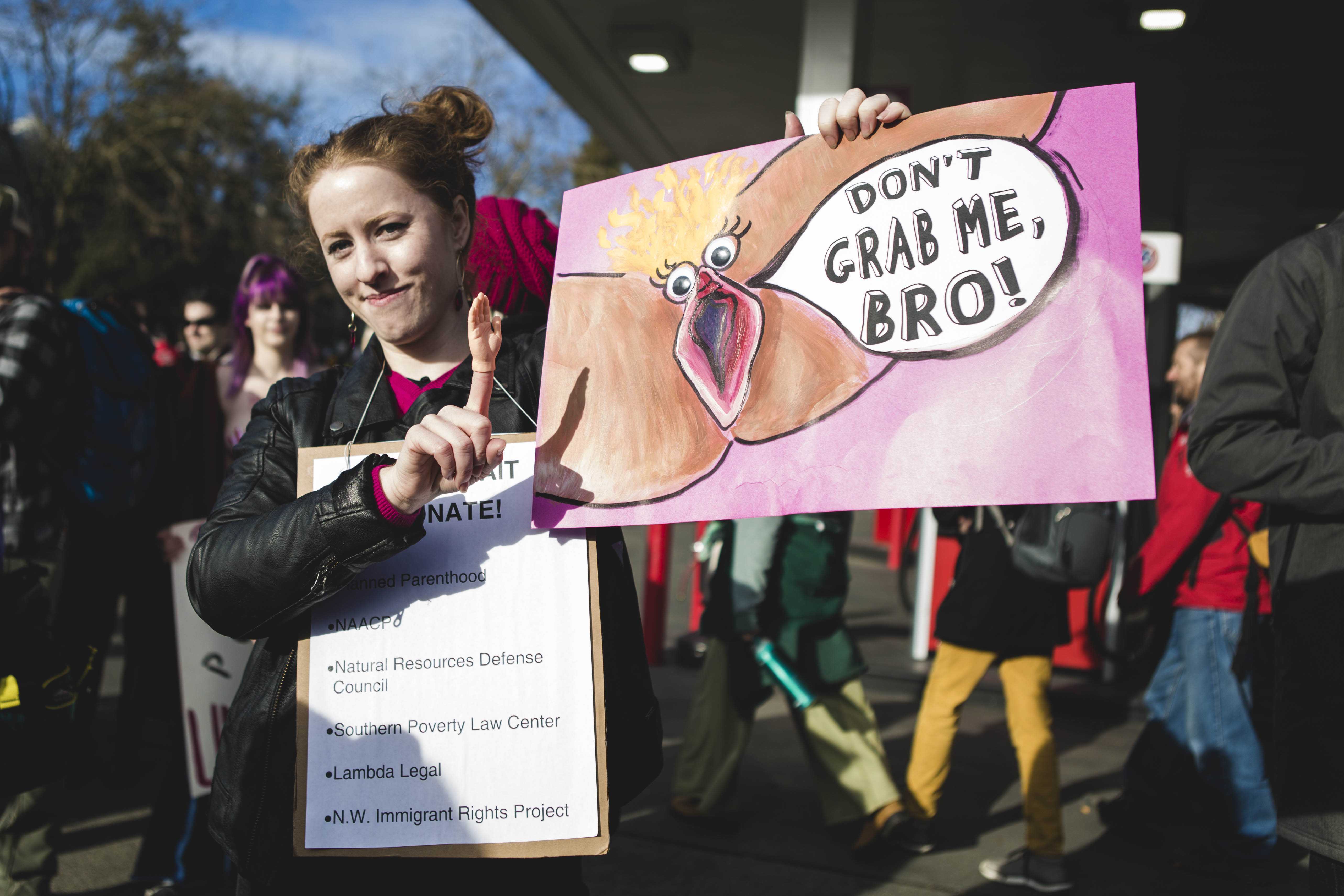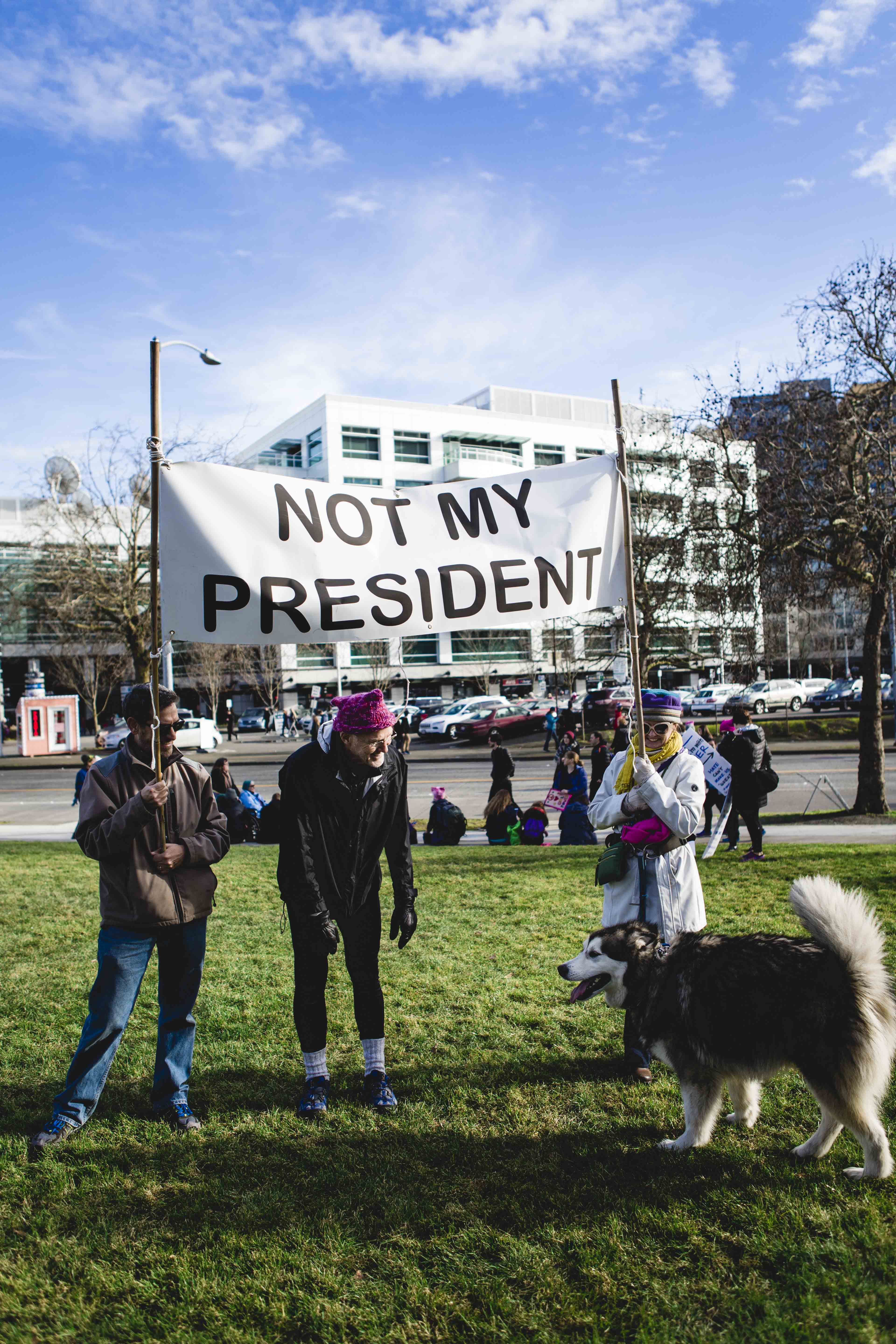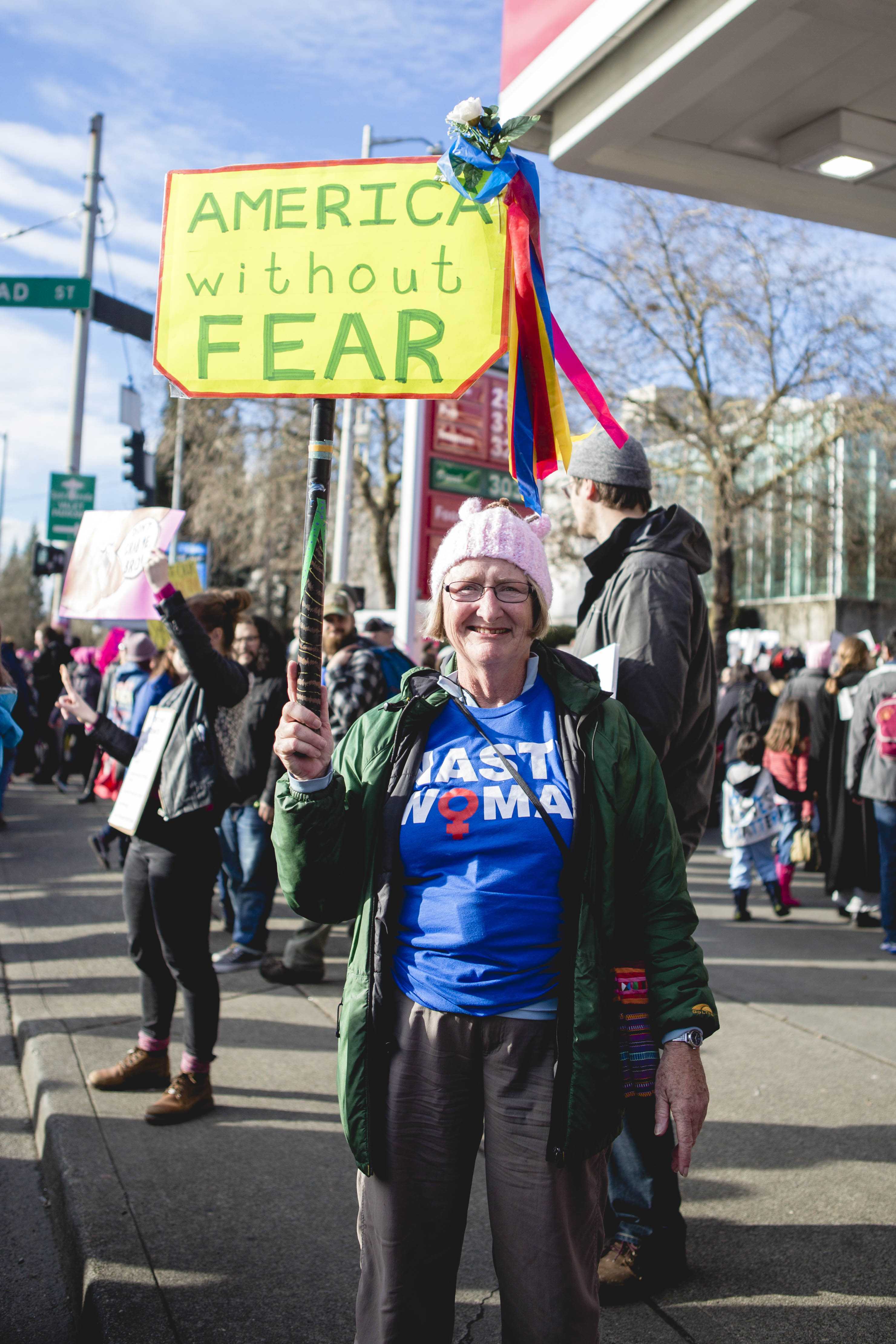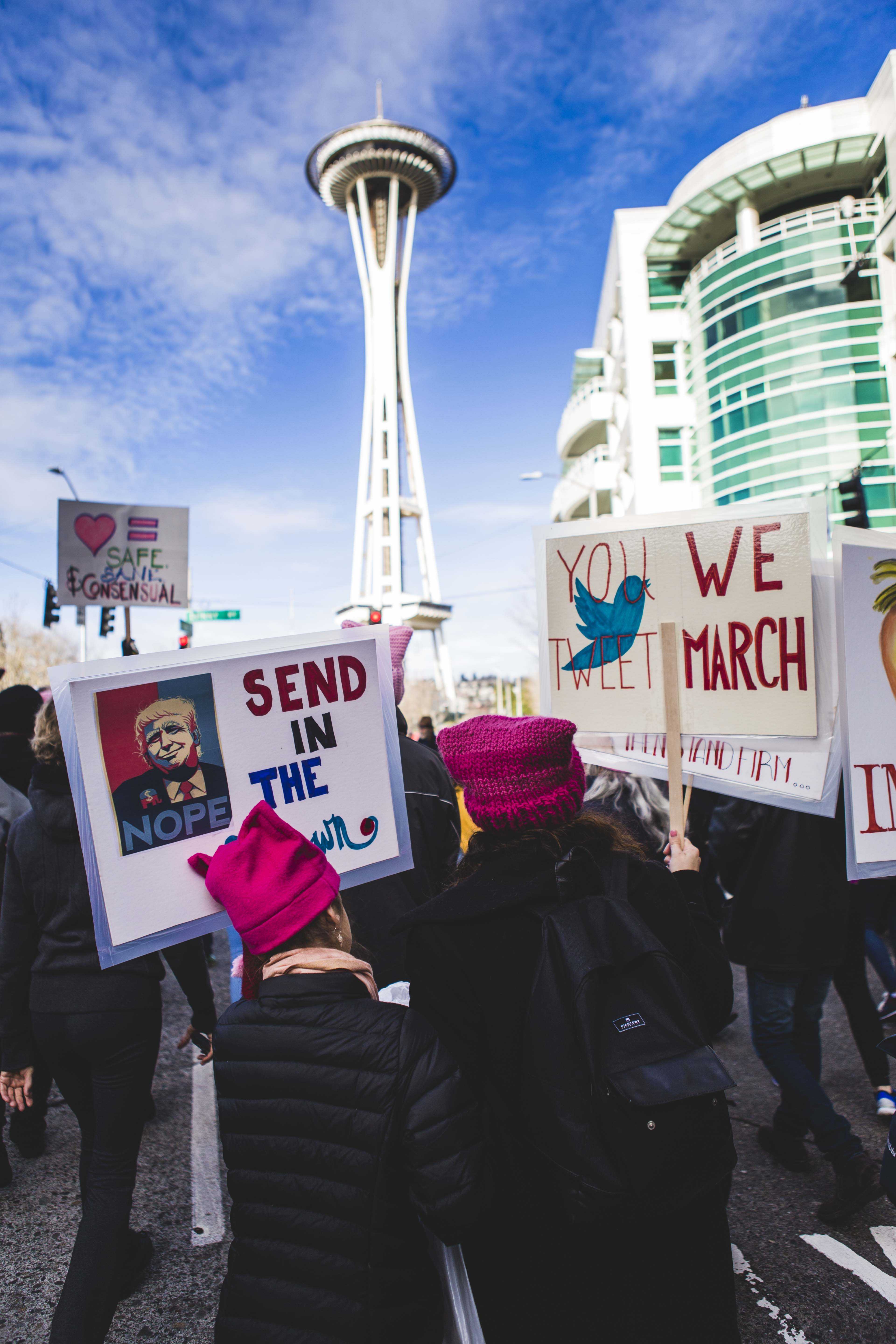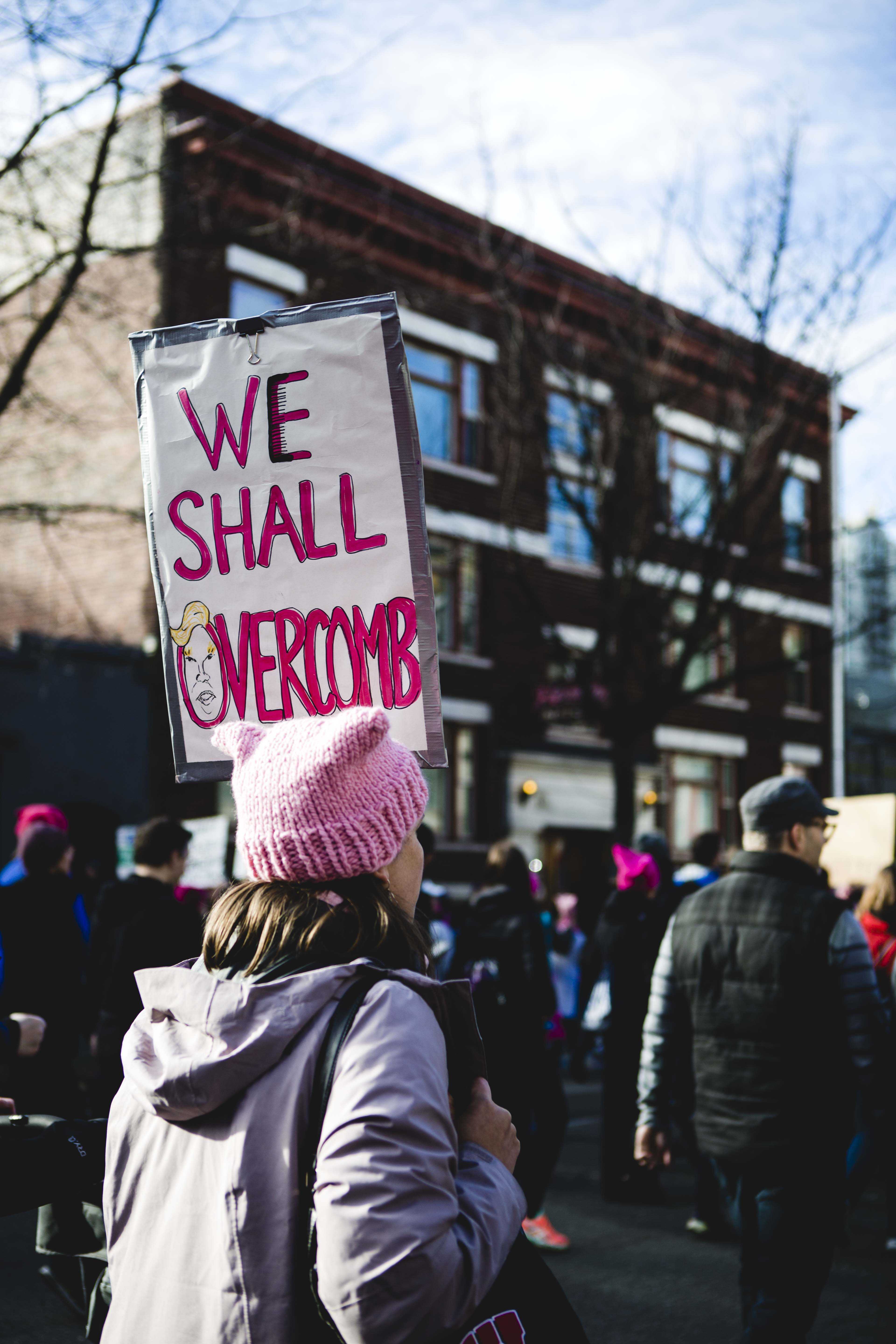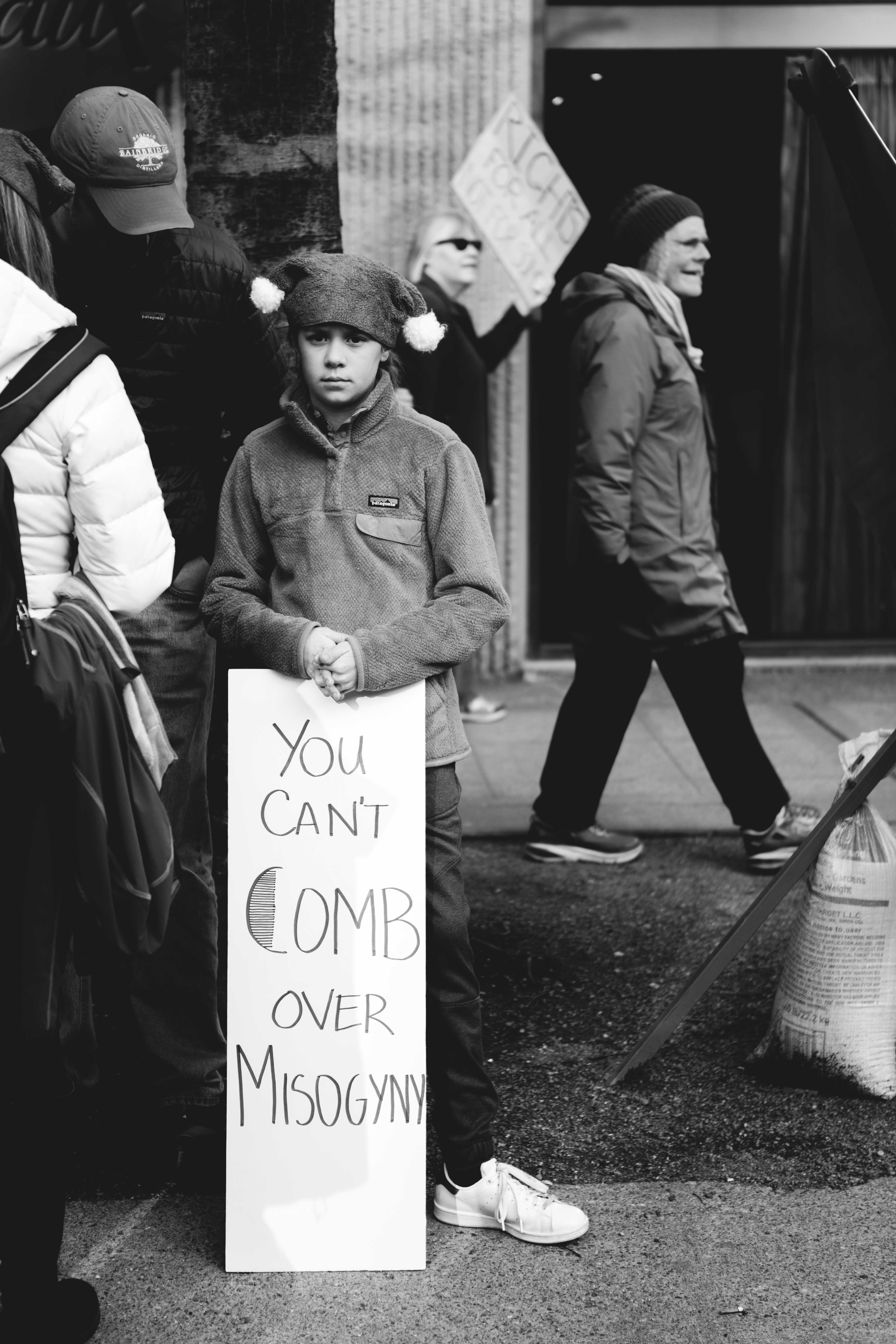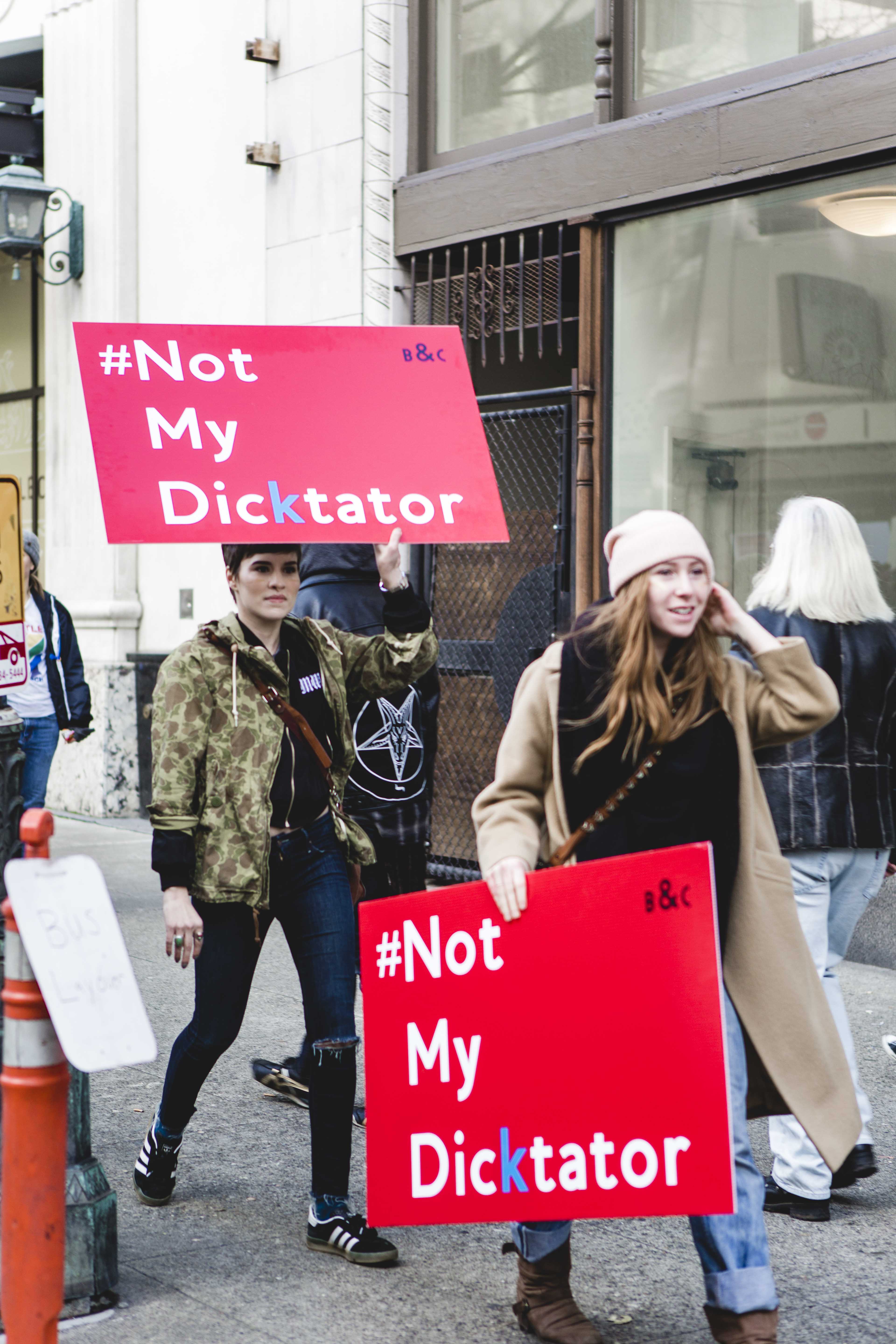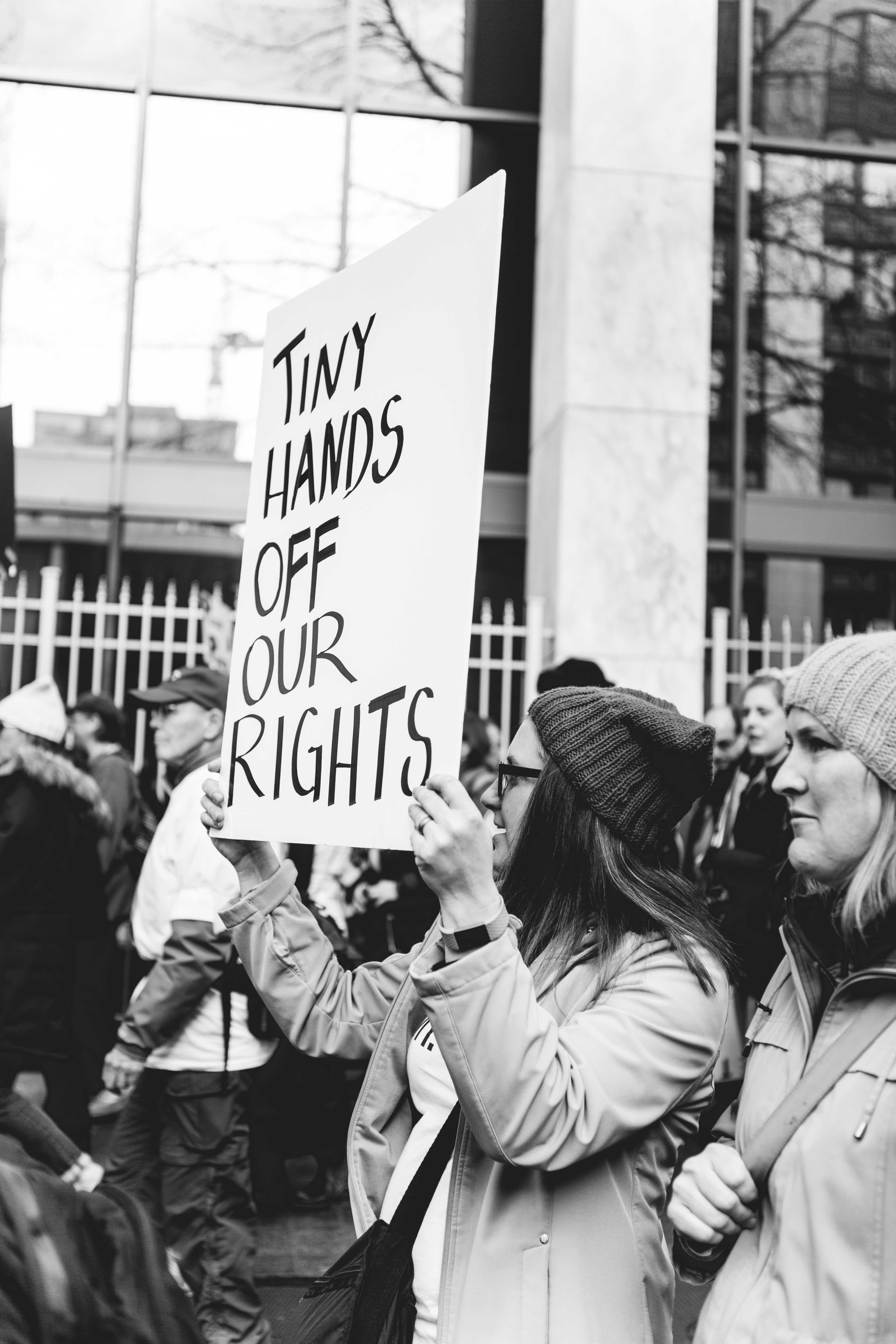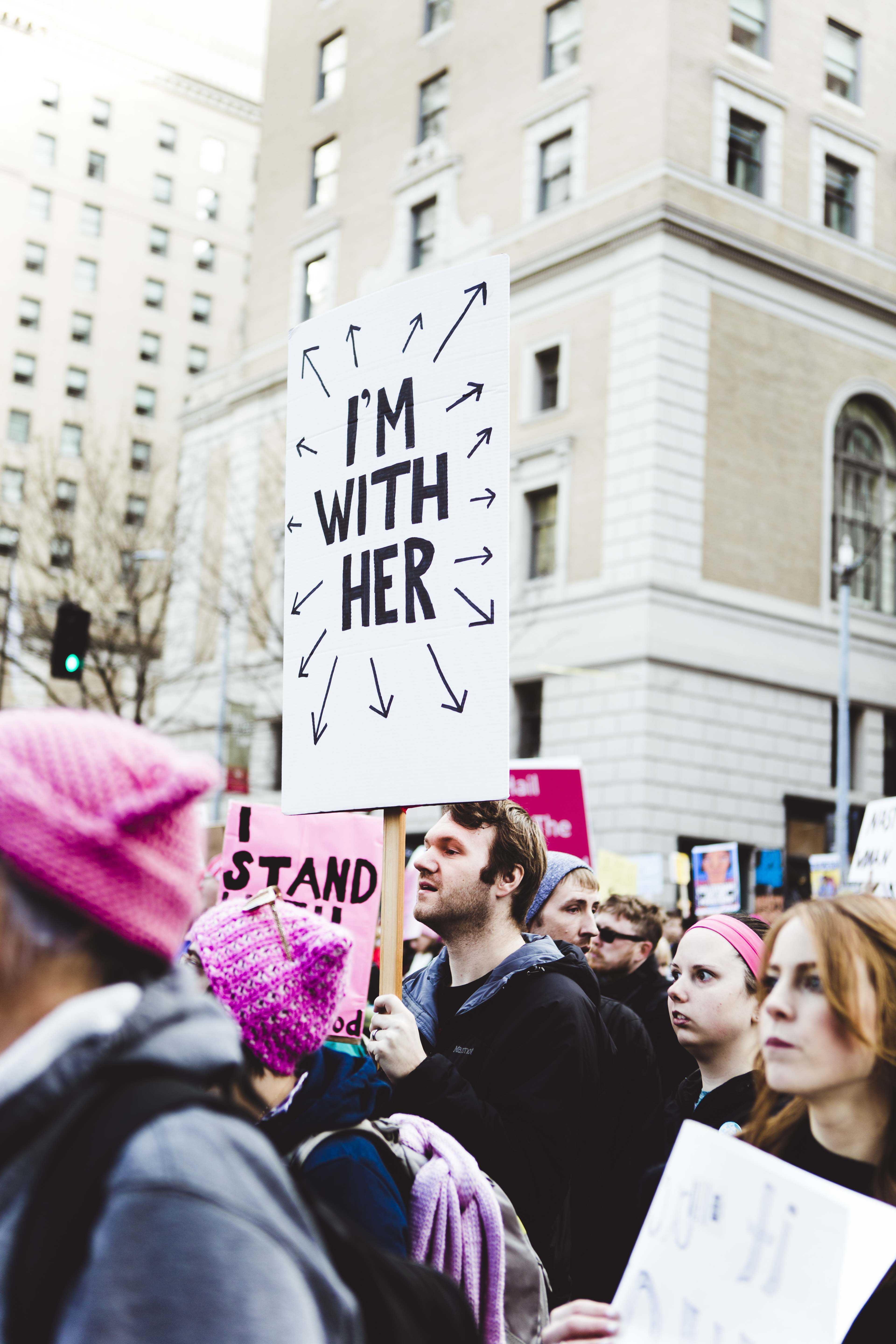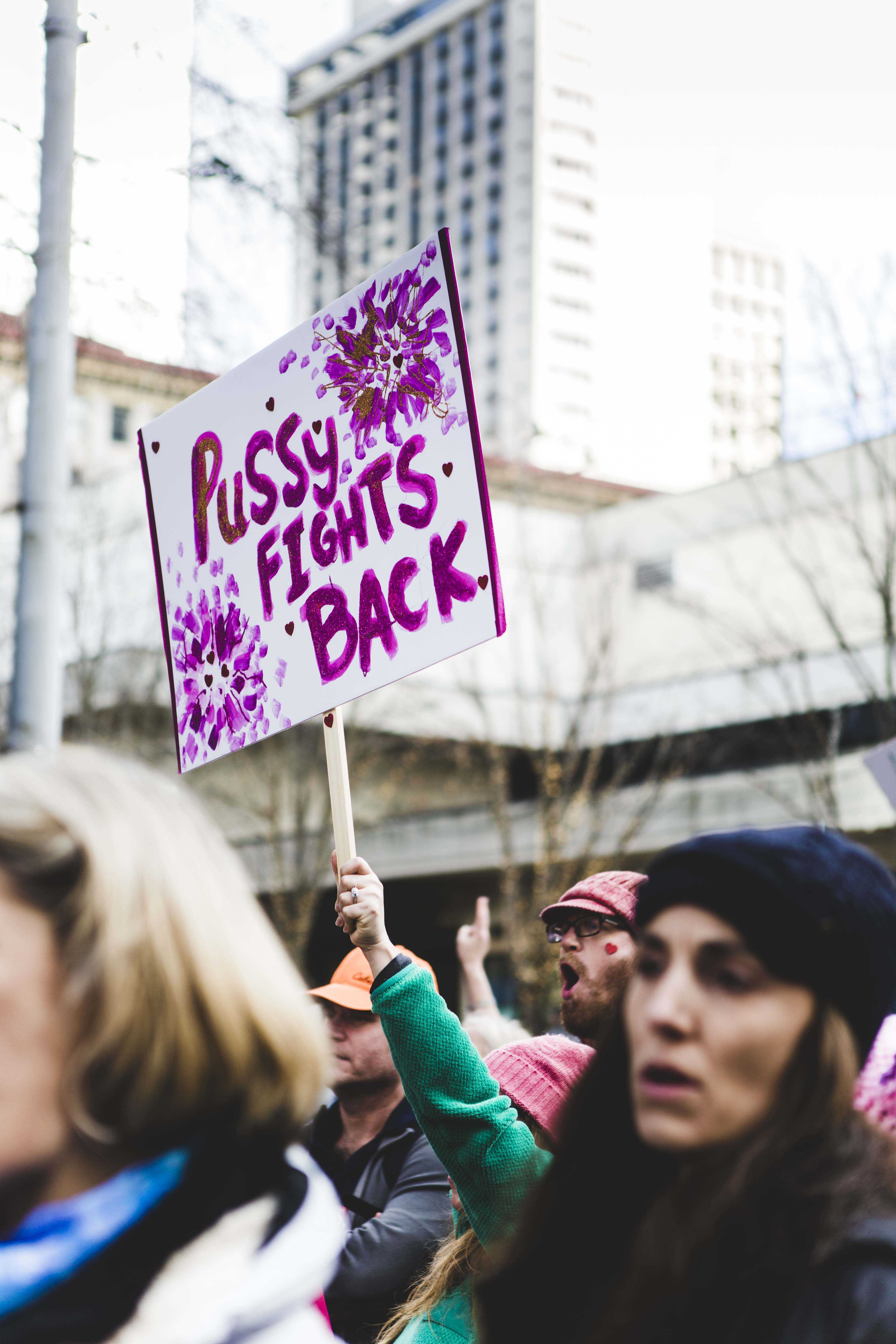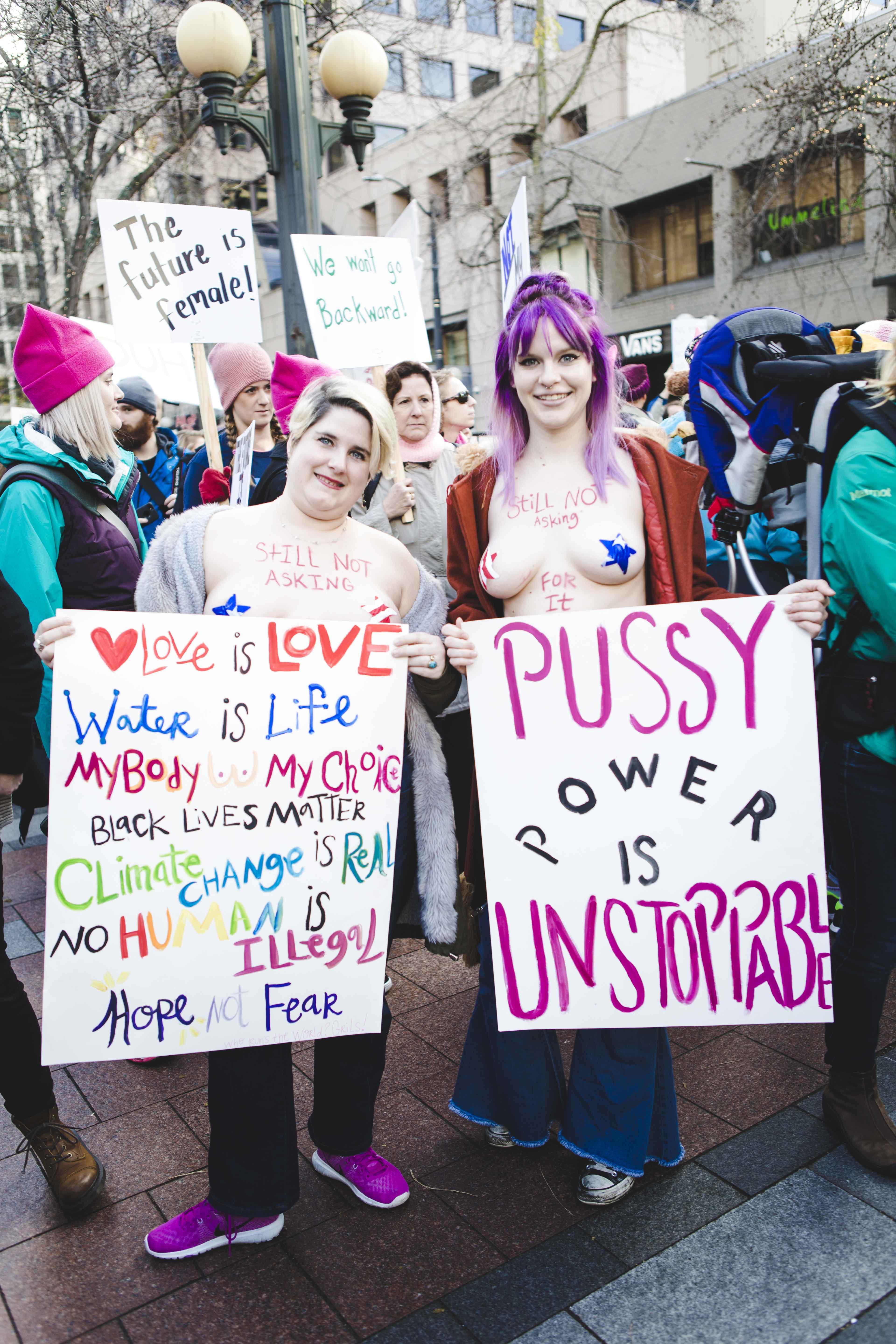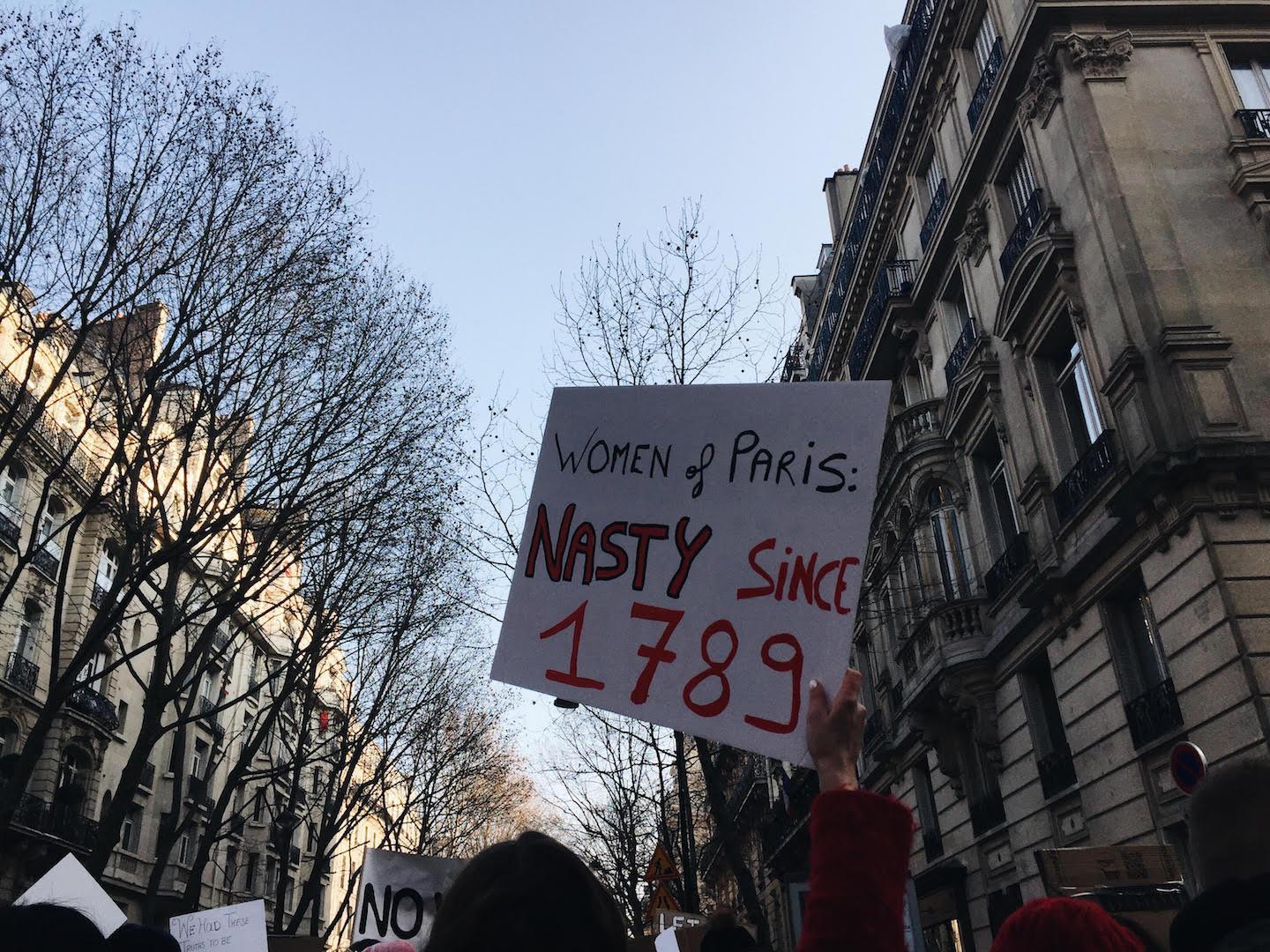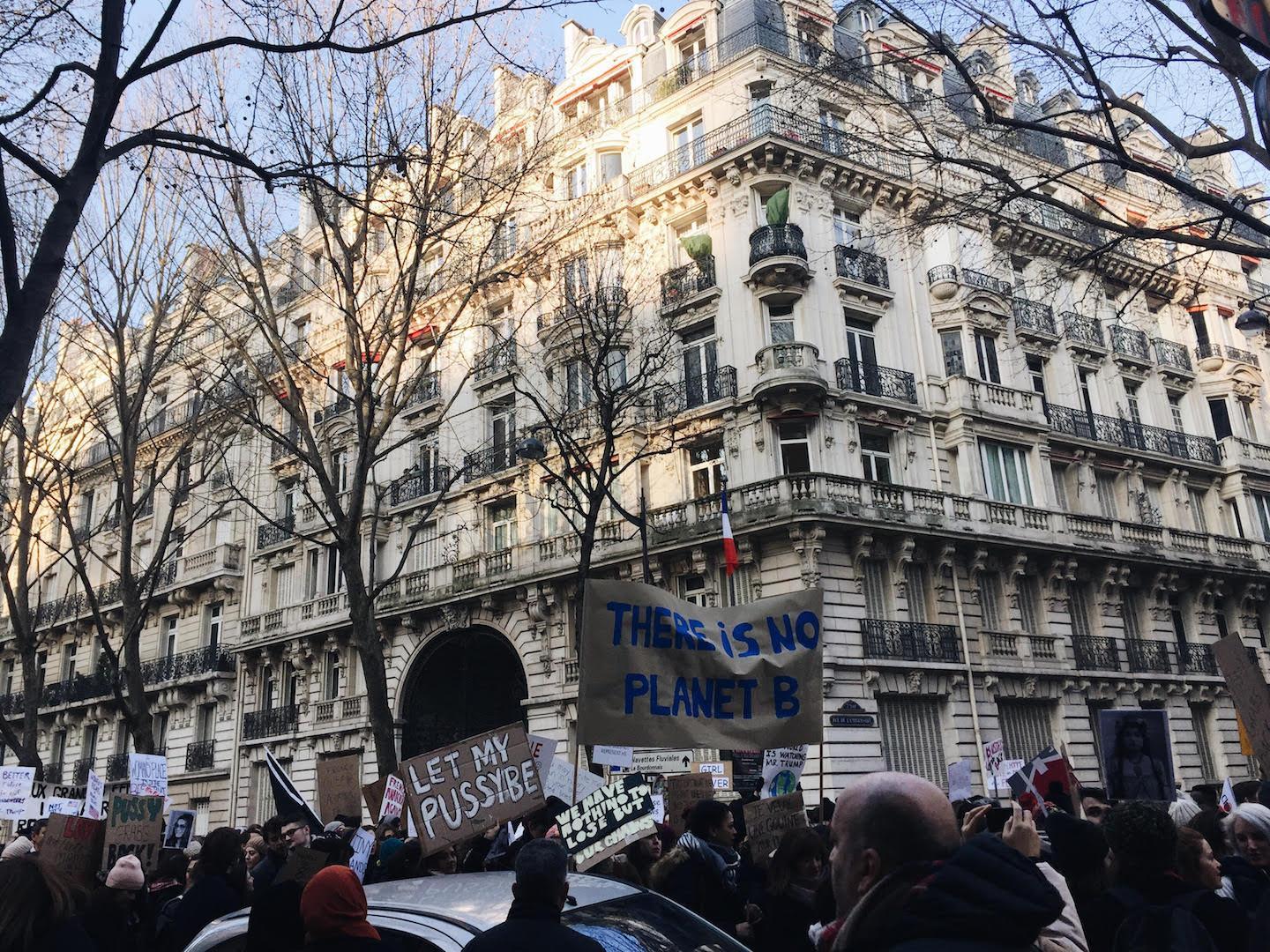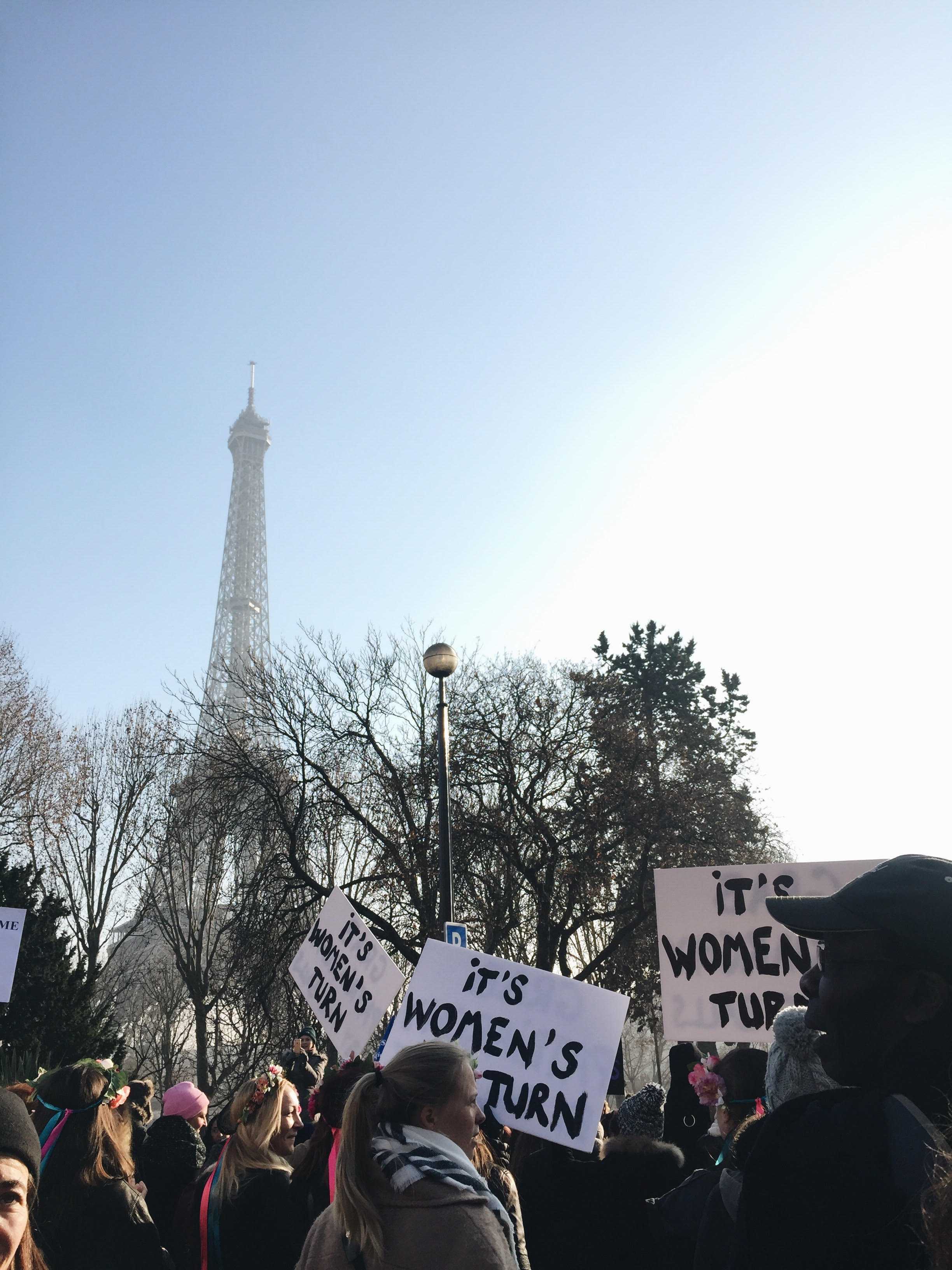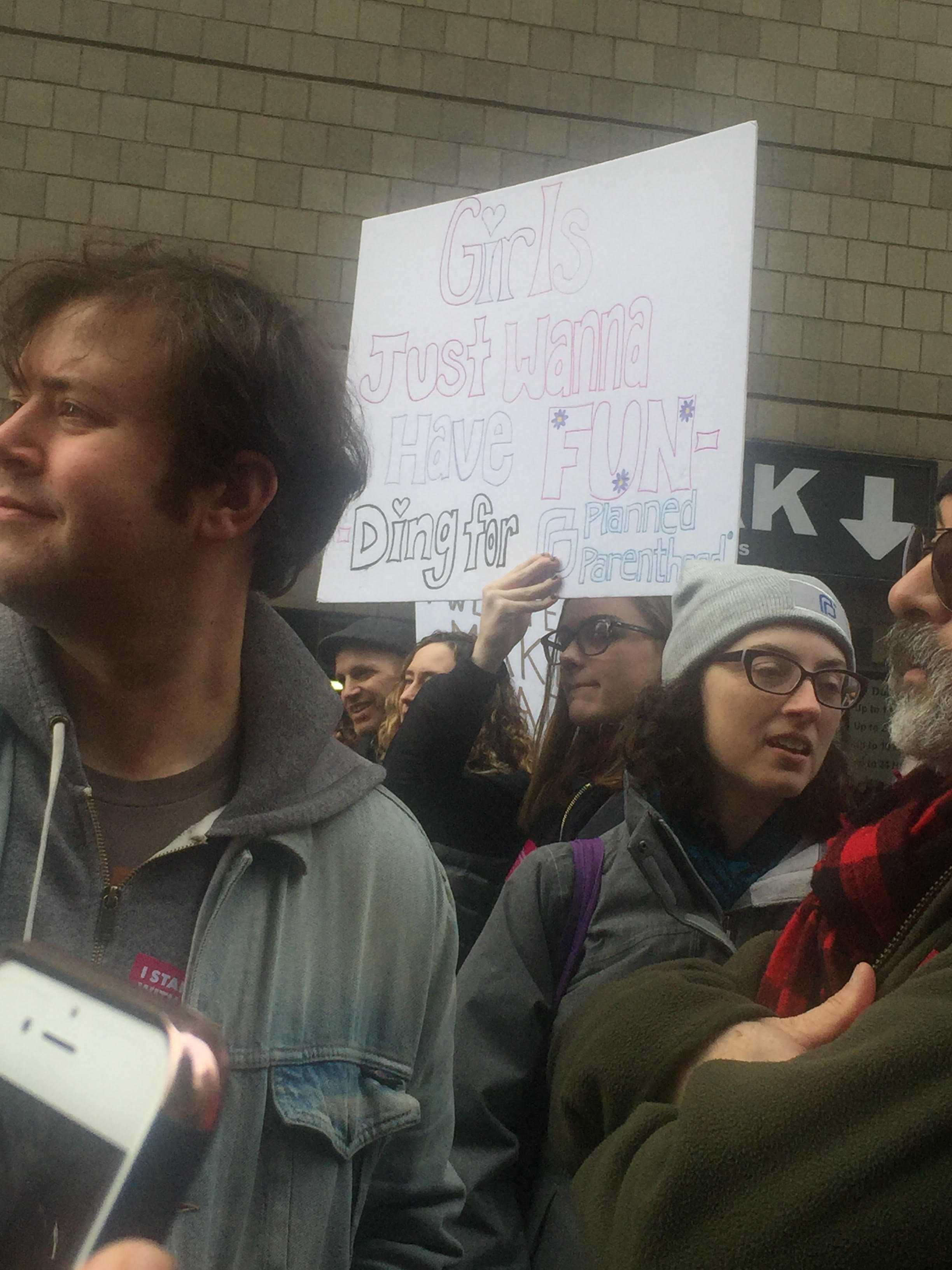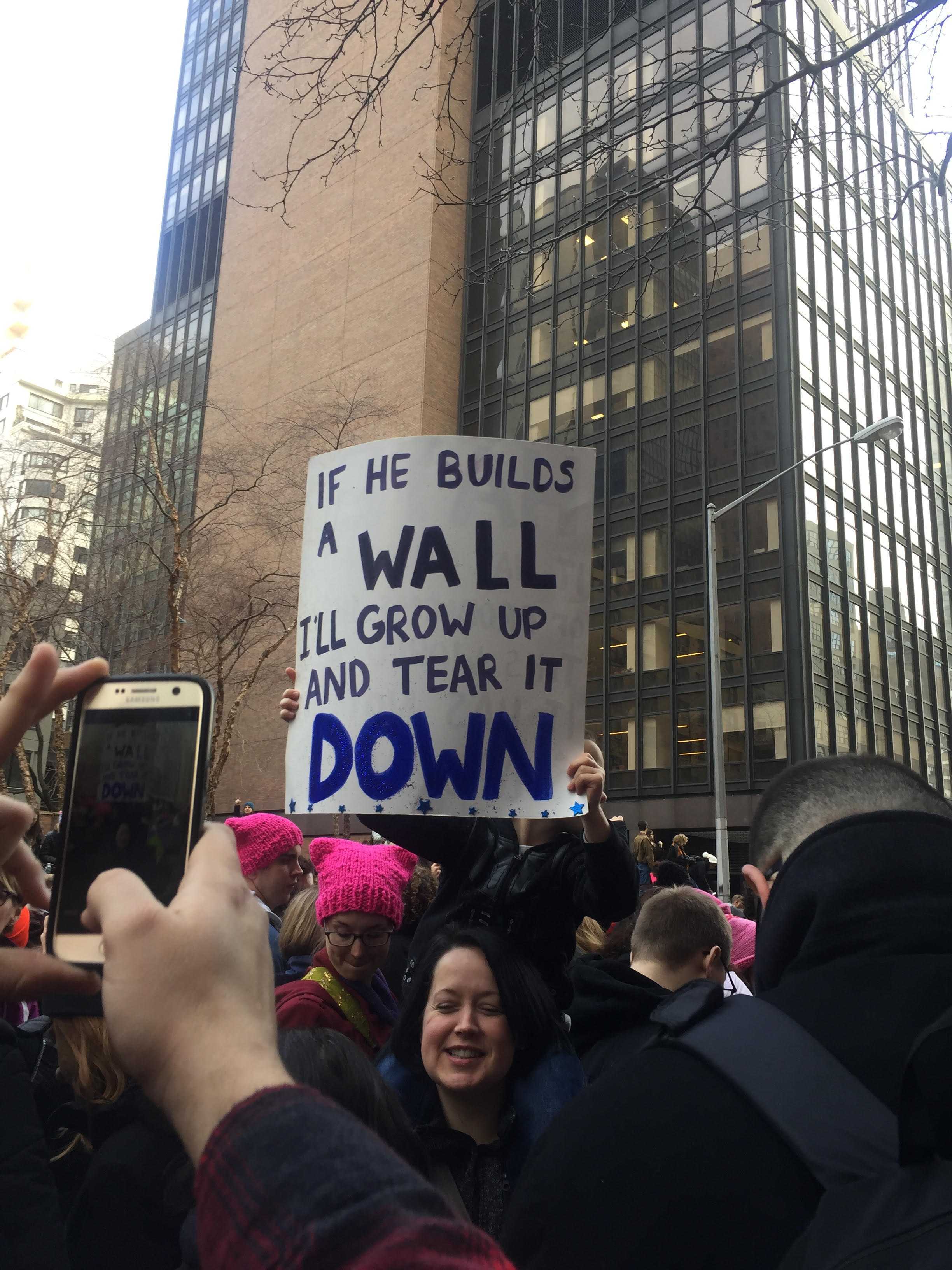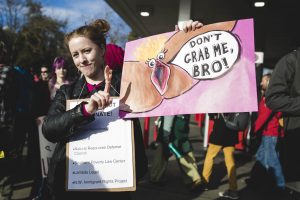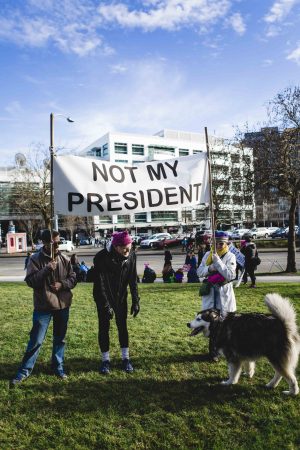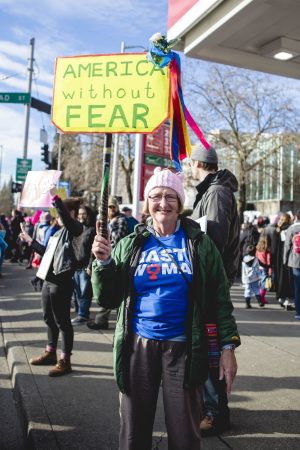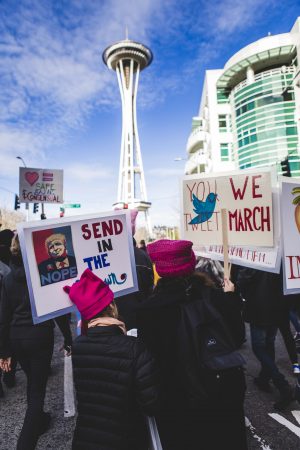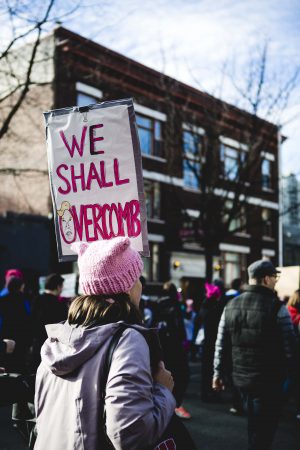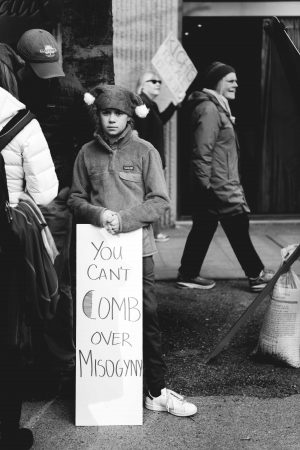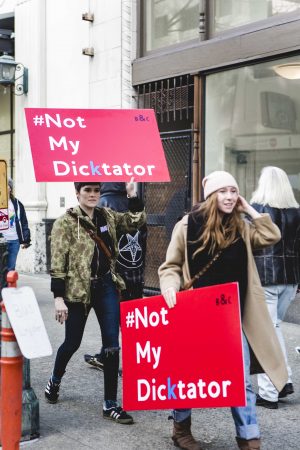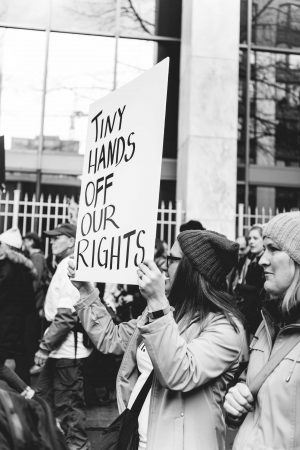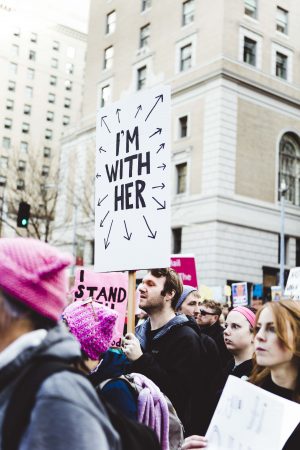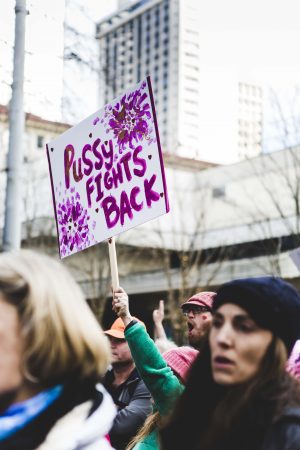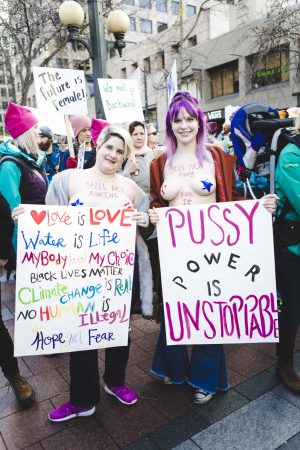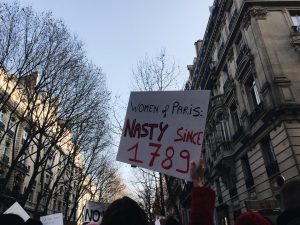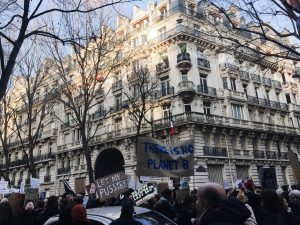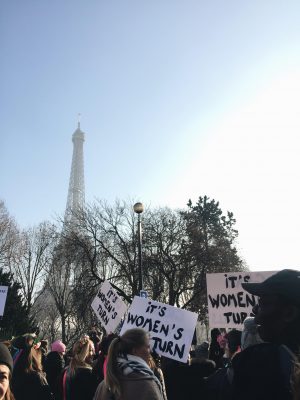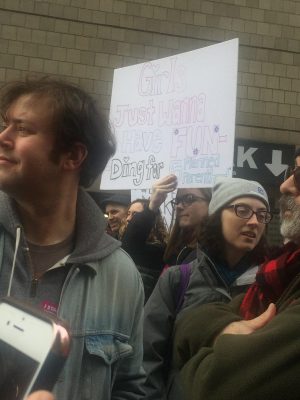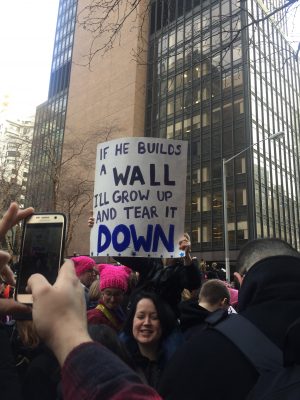Women’s March on Washington
My parents are, despite opposing my desire to protest, revolutionaries in their own right — they simply don’t see it that way. To them, finding ways to leave communist-controlled China and immigrate to Canada, later coming to the United States with my sister and I in tow, was an act of self-preservation. It wasn’t one grand, symbolic act of protest and resistance. They took small steps to improve the lives of themselves and their families.
My parents’ actions weren’t covered by the news. They weren’t documented by high-resolution aerial photos, hashtags or social media posts. They didn’t get to feel or see the support of millions, banded together on crowded subway platforms and streets and parks, with knitted hats and homemade cardboard signs. And yet, act they did.
When I marched with millions of other women and allies across the world on Saturday, I was thinking of my parents. They were my original inspiration, far before I learned what Asian American activism meant or entailed. When you’re Asian American, it’s difficult to find heroes and leaders that look like you. In college, I’ve been lucky enough to discover organizations like Asian/Pacific/Americans Building Relationships to Inspire Diversity, Growth, and Empowerment and the Asian/Pacific/American Institute — whose wonderful leaders organized our bus down to DC and gave free tickets to students — that have deepened and broadened my understanding of what it means to be Asian American.
Without these spaces, I would still be in the dark about the history of my own race — the Chinese Exclusion Act, the birth of Asian American activism at UC Berkeley or the murder of Vincent Chin. I wouldn’t possess the language to have a dialogue about my own race without learning about the terms Yellow Peril, Perpetual Foreigner or Model Minority. I wouldn’t have known about radical activists from the Asian diaspora like Grace Lee Boggs or Yuri Kochiyama.
A quote from Kochiyama, who lived through Japanese Internment and was famous for her activism that built solidarity among many communities of color, graced my protest sign yesterday. It was important for me to hold up a sign for Asian American women, with words that reflected how I felt about my own journey to politicization. “Consciousness is power,” Kochiyama said. “Tomorrow’s world is yours to build.”
It’s easy to become hopeless and exhausted when oppression comes endlessly from all angles. There have been so many instances since Nov. 8 when I couldn’t stand to look at the news any longer. The life-threatening hatred magnified by the Trump campaign and presidency has historical precedence and will certainly linger into the future. But I take comfort in knowing that those fighting for equality and liberation are the same — rooted in history and growing far beyond that. I saw that embodied in a 100-year-old woman in a wheelchair next to me in the crowd, and a young girl, no older than four or five, holding a self-made sign saying “Poopy Trump.” Multiply that by the millions of others who marched around the world and the millions of others who couldn’t make it, and it’s difficult not to feel rejuvenated and galvanized once again.
But I’m always fearful that we’ll let this warm feeling trick us into being complacent. I’m scared that we’ll keep saying, “let’s give him a chance,” “it won’t be that bad,” “stay positive” or “we’ll get out of this alive.” Some of us literally won’t. Simply showing up to a march doesn’t wipe away our privileges; it can elevate them. Many of us witnessed this in D.C.
We need to evaluate why there were tensions surrounding intersectionality leading up to the march. Why there were signs at the March that weren’t inclusive of non-cis, non-heterosexual and non-white women. Why marches are not accessible to those who are differently abled, physically and otherwise, or those without the economic freedom to travel or take off of work. Why the majority of white women voted for Trump, while non-white women overwhelmingly did not. There are many other discussions to be had. After all, movements aren’t perfect. The Women’s Suffrage movement was notoriously tainted by racism. We can agree that women are certainly a force to be reckoned with — but we are not just women. We have so many other identities that we cannot separate ourselves from.
When I think about the march, I remember the most powerful moment being when the crowd turned around from the rally and took its first step as a group. The march was the first step of many that need to be taken, but we did it together. In coming days, months and years, we’ll take our own distinct steps in our own communities, working on the many different causes that are important to us. These steps won’t garner the same attention as the March, but they are equally as important — if not more.
My steps include working on Asian American politicization, health care access and health disparities research. I’m thankful for my friends who take their own steps in other marginalized communities and other causes they are devoted to. And I’m most thankful for the times we get together, when we talk about our goals, frustrations and hesitations and forge understanding and action. It’s far too tiring to take up every cause as our own. Let us march — for different reasons, but always forward — and build tomorrow’s world.
A version of this article appeared in the Monday, Jan. 23 print edition. Email Carolyn Fan at [email protected].























































































































































